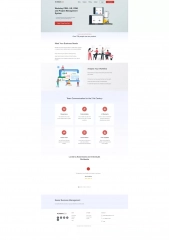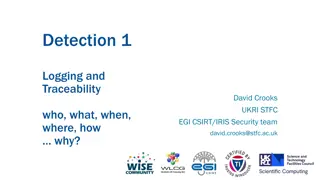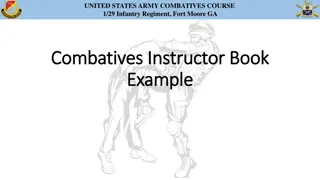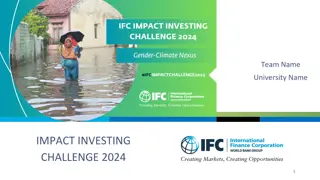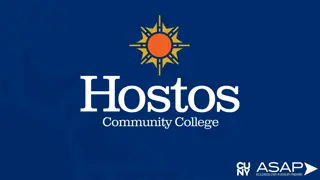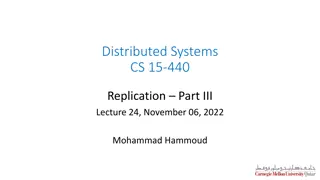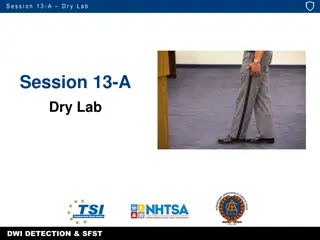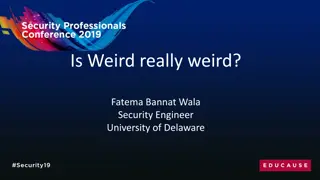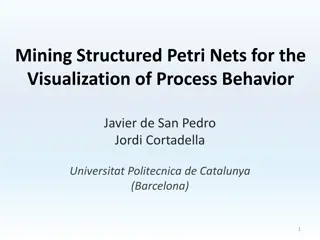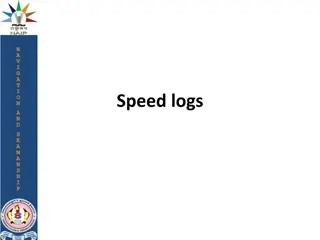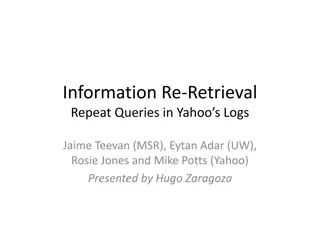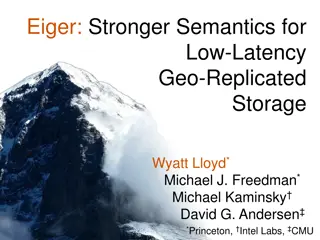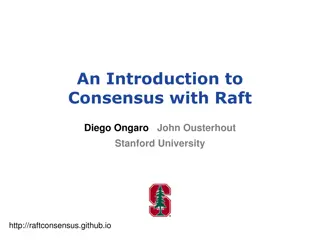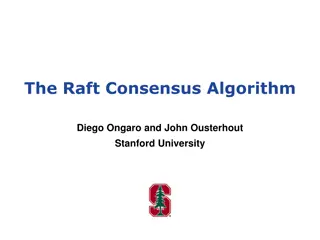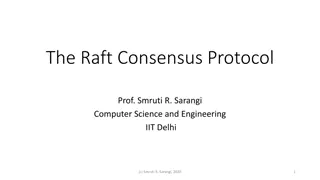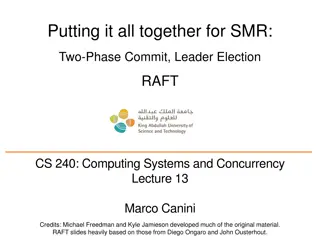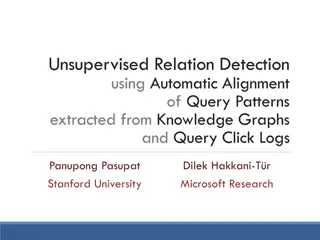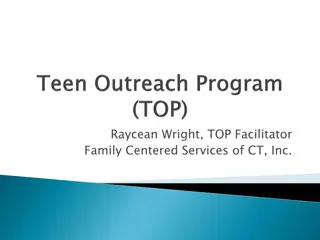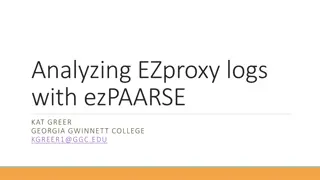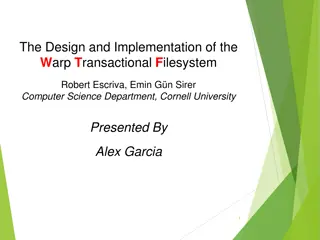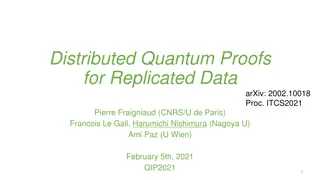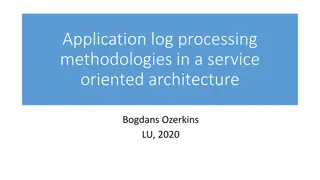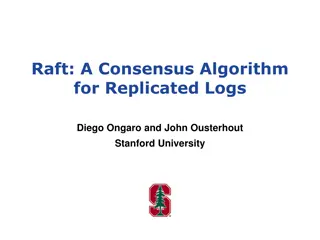Best CRM for lead management
Workday CRM is easy to use CRM software that is designed for B2B. It include everything you need to run your businesses. like manage customers, projects, invoices, estimates, time logs
1 views • 1 slides
Best Customer Relationship Management CRM services Lead Project Management
Workday CRM is easy to use CRM software that is designed for B2B. It include everything you need to run your businesses. like manage customers, projects, invoices, estimates, time logs
0 views • 1 slides
Deep Dive
Explore the functionalities and installation process of the Intune Management Extension (IME). Learn how IME processes app policies, scripts, and handles failures. Delve into its role in deploying PowerShell scripts and Win32 applications on Windows devices enrolled in Intune. Discover the importanc
0 views • 68 slides
INVENTORY MANAGEMENT.
Managing inventory under ISO 15189 guidelines involves Quantity, Quality, and Process management. Key aspects include demand forecasting, inventory movement control, consumption planning, and ensuring fitness for purpose. Quantity management aims to balance demand and supply, manage supply economics
5 views • 13 slides
Importance of Logging and Traceability in Cybersecurity
Logging and traceability play a crucial role in cybersecurity, providing essential insights into system activities and aiding in incident response. This article explores the significance of logging, examples of log analysis, and the types of logs related to host and service activities.
1 views • 61 slides
United States Army Combatives Course Overview
Explore the comprehensive resources and materials related to the United States Army Combatives Course held at the 1/29 Infantry Regiment in Fort Moore, GA. This collection includes instructor books, risk assessment worksheets, visitor logs, course SOPs, training drills, graduation requirements, and
5 views • 13 slides
CHILDREN AT WORK DURING THE INDUSTRIAL REVOLUTION
Explore the types of work children did during the Industrial Revolution from 1851-1901. Learn about available sources for historians, such as census records, church registers, school logs, newspapers, photographs, poetry, and government reports. Discover how the 1851 census in England and Wales prov
2 views • 20 slides
IMPACT INVESTING CHALLENGE 2024
Addressing the gender-climate nexus, our team's investment proposal focuses on empowering women in sustainable finance initiatives. We highlight the investment target, business model, and how our solution tackles gender inequalities within climate finance. Our implementation plan emphasizes commerci
4 views • 6 slides
Achieving Student Success through ASAP Programs
Accelerated Study in Associate Programs (ASAP) provides comprehensive academic and wraparound support to remove barriers for students, ensuring they can focus on their education. With a proven track record of student success based on data and research, ASAP offers various benefits including tuition
0 views • 14 slides
ATH Export House
Athexporthouse.com is a renowned manufacturer of high-quality Gurjan face veneer in Indonesia. They use only the best quality Gurjan logs to produce veneers that are strong, durable, and resistant to moisture and insects. The veneers are carefully processed and graded to ensure consistency and unifo
0 views • 1 slides
Impact of Burning Firewood vs. Compressed Logs on PM2.5 Concentrations
Study comparing the effects of burning firewood and compressed logs on PM2.5 concentrations. Results show that compressed logs produce significantly lower particulate matter pollution. Recommendations include using compressed wood for reduced smoke emission. Various brands and types of compressed lo
0 views • 10 slides
Understanding Consistency Protocols in Distributed Systems
Today's lecture covers consistency protocols in distributed systems, focusing on primary-based protocols and replicated-write protocols. These protocols play a crucial role in ensuring consistency across multiple replicas. One example discussed is the Remote-Write Protocol, which enforces strict con
0 views • 35 slides
Understanding Timber Production: Types, Classification, and Sustainability
Timber production involves the classification of timbers into hardwoods and softwoods based on the type of trees they come from. Hardwoods are from deciduous trees, while softwoods are from coniferous trees. Sustainable forestry practices, including managed logging activities, ensure the responsible
1 views • 11 slides
Design and Analysis of Engineering Experiments in Practice
Explore the fundamentals of engineering experiments, including blocking and confounding systems for two-level factorials. Learn about replicated and unreplicated designs, the importance of blocking in a replicated design, ANOVA for blocked designs, and considerations for confounding in blocks. Dive
0 views • 15 slides
DWI Detection and SFST Training Session 1.3 - A Dry Lab
This training session focuses on properly administering SFSTs, observing and recording subject performances, interpreting subject performances, and maintaining SFST logs for DWI detection. Participants will work in teams, observe subjects performing tasks, record clues observed, and engage in discus
0 views • 5 slides
Top 10 Dream11 Alternatives Generating Million Dollar Revenue
Numerous Dream11 Clone have surged in the fantasy sports market, achieving substantial revenue through replicated gameplay mechanics and diverse sports offerings. These platforms captivate a broad audience, monetizing through entry fees and strategic
4 views • 1 slides
Understanding Weird Logs in Zeek for Network Security Analysis
Dive deep into the world of "Weird" logs in Zeek with Fatema Bannat Wala, a Security Engineer from the University of Delaware. Discover the motivation behind analyzing over 200 types of Weirds triggered in network traffic, explore common types of Weirds, and learn how these logs can reveal crucial i
1 views • 29 slides
Visualization of Process Behavior Using Structured Petri Nets
Explore the concept of mining structured Petri nets for visualizing process behavior, distinguishing between overfitting and underfitting models, and proposing a method to extract structured slices from event logs. The approach involves constructing LTS from logs, synthesizing Petri nets, and presen
0 views • 26 slides
Raft Consensus Algorithm Overview for Replicated State Machines
Raft is a consensus algorithm designed for replicated state machines to ensure fault tolerance and reliable service in distributed systems. It provides leader election, log replication, safety mechanisms, and client interactions for maintaining consistency among servers. The approach simplifies oper
0 views • 32 slides
Analysis of Faculty-wide Educational Renewal Project Results
Results from a faculty-wide scan of courses in an educational renewal project reveal the distribution and emphasis on various research domains, knowledge, literacy, and skills among faculty members. The analysis includes percentages of courses covering research types, technical skills, communication
0 views • 7 slides
Understanding Speed Logs and Their Evolution in Maritime Navigation
Speed logs play a crucial role in measuring a vessel's speed and distance traveled through water. The evolution from primitive chip logs to modern RPM counters has significantly improved accuracy and efficiency in maritime navigation. Learn about the history, types, and working principles of speed l
0 views • 17 slides
Understanding Re-Finding Behavior in Yahoo Search Logs
Explore a study on re-finding behavior in Yahoo search logs, focusing on quantifying user re-finding actions, known patterns, methodology, and challenges in inferring re-finding intent. The research sheds light on the commonality and stability of re-finding, emphasizing the significance of identifyi
0 views • 22 slides
Stronger Semantics for Low-Latency Geo-Replicated Storage
Discusses the importance of strong consistency and low latency in geo-replicated storage systems for improving user experience and revenue. Various storage dimensions, sharding techniques, and consistency models like Causal+ are explored. The Eiger system is highlighted for ensuring low latency by k
0 views • 24 slides
Verifying Functional Correctness in Conflict-Free Replicated Data Types
Explore the significance of verifying functional correctness in Conflict-Free Replicated Data Types (CRDTs), focusing on ensuring data consistency and program logic for clients. Learn about the importance of Strong Eventual Consistency (SEC) and the necessity of separate verification with atomic spe
0 views • 33 slides
An Introduction to Consensus with Raft: Overview and Importance
This document provides an insightful introduction to consensus with the Raft algorithm, explaining its key concepts, including distributed system availability versus consistency, the importance of eliminating single points of failure, the need for consensus in building consistent storage systems, an
0 views • 20 slides
The Raft Consensus Algorithm: Simplifying Distributed Consensus
Consensus in distributed systems involves getting multiple servers to agree on a state. The Raft Consensus Algorithm, designed by Diego Ongaro and John Ousterhout from Stanford University, aims to make achieving consensus easier compared to other algorithms like Paxos. Raft utilizes a leader-based a
0 views • 26 slides
Understanding the Raft Consensus Protocol
The Raft Consensus Protocol, introduced by Prof. Smruti R. Sarangi, offers a more understandable and easier-to-implement alternative to Paxos for reaching agreement in distributed systems. Key concepts include replicated state machine model, leader election, and safety properties ensuring data consi
0 views • 27 slides
Fault-Tolerant Replicated Systems in Computing
Overview of fault-tolerant replicated state machine systems in computing, covering topics such as primary-backup mechanisms, high availability extensions, view changes on failure, leader election, and consensus protocols for replicated operations. The content emphasizes the importance of leaders in
0 views • 38 slides
Overview of Large Scale Log Studies in HCI
This presentation from the CHI 2011 course delves into the design and analysis of large-scale log studies, highlighting the benefits and drawbacks of utilizing logs to understand user behaviors. It explores the insights logs provide, the challenges faced, and strategies to generate relevant logs for
0 views • 146 slides
Understanding DNA Replication Process in Living Organisms
DNA replication is a fundamental biological process where an original DNA molecule produces two identical copies. This process involves initiation, elongation, and termination stages, utilizing replicator and initiator proteins. The DNA is unwound and replicated with the help of enzymes like helicas
0 views • 16 slides
Analysis of Unique URLs Retrieval Patterns in Web Logs
This analysis delves into the retrieval patterns of unique URLs from web logs, revealing that a significant percentage of URLs are re-presented from different client IP addresses. The study identifies top repeaters and examines instances of potential proxy device usage based on AS locations.
0 views • 15 slides
Unsupervised Relation Detection Using Knowledge Graphs and Query Click Logs
This study presents an approach for unsupervised relation detection by aligning query patterns extracted from knowledge graphs and query click logs. The process involves automatic alignment of query patterns to determine relations in a knowledge graph, aiding in tasks like spoken language understand
0 views • 29 slides
Family Centered Services of CT: Empowering Youth through TOP Sessions & Community Service
Family Centered Services of CT, led by Executive Director Cheryl Burack, offers a nationally-replicated youth development program focusing on teen pregnancy prevention and academic success. Through TOP Sessions, 15-17-year-olds engage in guided discussions, community service learning, and individual
0 views • 8 slides
Analyzing EZproxy Logs with ezPAARSE
This presentation delves into the analysis of EZproxy logs using ezPAARSE, a free and open-source software with a GPL-compatible license. It covers log formats, examples, benefits, and drawbacks of locally-created logs, offering insights and value for usage statistics. Explore other options like AWs
0 views • 10 slides
The Design and Implementation of the Warp Transactional Filesystem
The Warp Transactional Filesystem (WTF) offers a new distributed filesystem design focusing on strong guarantees and zero-copy interfaces. It introduces the concept of file-slicing abstraction to enhance application performance, scalability, and transactional operations. The WTF architecture compris
0 views • 16 slides
Quantum Distributed Proofs for Replicated Data
This research explores Quantum Distributed Computing protocols for tasks like leader election, Byzantine agreement, and more. It introduces Quantum dMA protocols for verifying equality of replicated data on a network without shared randomness. The study discusses the need for efficient protocols wit
0 views • 28 slides
Understanding Standard Deviation and Standard Error of the Means
Standard deviation measures the variability or spread of measurements in a data set, while standard error of the means quantifies the precision of the mean of a set of means from replicated experiments. Variability is indicated by the range of data values, with low standard deviation corresponding t
0 views • 7 slides
Big Data-Based Security Analytics for Protecting Virtualized Infrastructures in Cloud
This paper proposes a novel big data-based security analytics approach to detect advanced attacks in virtualized infrastructures in cloud computing. By utilizing network logs and user application logs collected from virtual machines, attack features are extracted through graph-based event correlatio
0 views • 54 slides
Application Log Processing Methodologies in Service-Oriented Architecture
Understanding the methodologies for processing application logs in a service-oriented architecture, including data collection, purpose, programming language toolkits, centralized log collection, non-discardable logs collection, event/enterprise bus integration, cloud platform data collection, and Ku
0 views • 13 slides
Raft: A Consensus Algorithm for Replicated Logs Overview
Raft is a consensus algorithm developed by Diego Ongaro and John Ousterhout at Stanford University. It aims to ensure replicated log clients and consensus modules maintain proper log replication and state machine execution across servers. Raft utilizes leader election, normal operation for log repli
0 views • 31 slides
